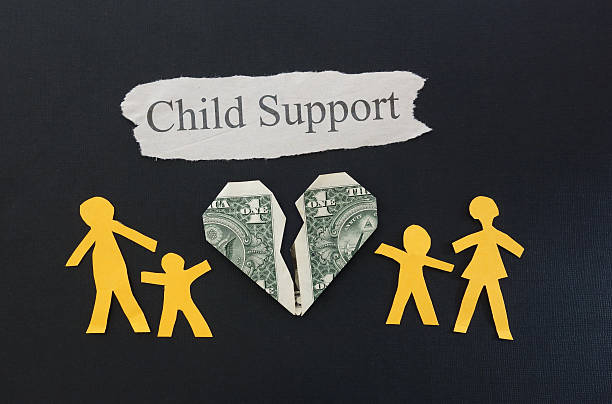Navigating the complexities of child support can be a daunting task, especially when faced with the burden of arrears. The question of “How to Get Child Support Arrears Dismissed” is a pressing concern for many, fraught with legal intricacies and financial implications. This article is a comprehensive resource designed to demystify the process and provide clear guidance for those seeking relief from the weight of past-due child support.
Our expertise is grounded in a deep understanding of family law and the intricacies of the child support system. Drawing from a vast reservoir of legal knowledge and practical experience, we are equipped to offer you accurate and actionable information that can pave the way to resolving child support arrears.
Recognizing the significance of this issue, we present content that not only informs but also empowers. You will find detailed explanations of the legal criteria for dismissal, the steps involved in petitioning the court, and the potential outcomes of such actions. Our discussion extends to the exploration of state-specific regulations and the role of negotiation in settling arrears.
The value of this article lies in its ability to transform a seemingly insurmountable challenge into a navigable path forward. As we dissect each legal avenue available to those seeking arrears dismissal, we aim to spark your curiosity and equip you with the knowledge to approach this sensitive matter with confidence.
We invite you to delve into the subtleties of child support arrears dismissal, as we reveal strategies that could potentially lead to financial reprieve and a new beginning. By the end of this article, you will not only understand the processes and prerequisites for getting child support arrears dismissed but also the broader implications for all parties involved. Let’s embark on this informative journey together.
Contents
Understanding Child Support Arrears
Child support arrears refers to overdue child support payments that were not made by a non-custodial parent as required by a child support order. Arrears accrue when the paying parent misses full or partial payments over time.
In addition to the overdue amount, interest and penalties may be added by the state child support agency. This can cause arrears to grow rapidly if the debt is not addressed. Having large arrears can seriously affect the paying parent’s finances and livelihood.
It’s understandable that parents may struggle to make payments at times due to job loss, pay cuts, illnesses, or other challenges. However, both parents must make good faith efforts to provide for their children. Working to get arrears reduced shows accountability.
Consequences of Unpaid Child Support
Allowing child support arrears to grow unchecked can negatively impact the paying parent in multiple ways:
- Bad credit – Unpaid arrears are reported to credit bureaus, damaging credit scores. This makes it harder to qualify for loans, mortgages, and other credit.
- Suspended driver’s license – Many states suspend driver’s licenses for those behind on child support payments as an enforcement tactic. This can hinder the ability to get or keep a job.
- Wage garnishment – The state child support agency can get a court order to garnish wages, taking 25-65% of each paycheck to pay down the arrears balance. This leaves less take-home pay.
- Jail time – In the most severe cases, not paying child support can potentially lead to jail time according to some state laws. The goal is to compel payment.
Falling behind understandably happens at times, but promptly addressing arrears is critical to avoid punitive measures. There are constructive options to resolve debt that supports your children.
Negotiating Payment Plans or Debt Reduction
If child support arrears are owed to the other parent (called unassigned arrears), then it may be possible to negotiate alternative payment plans or even forgiveness of part of the debt. Here are some tips:
- Highlight good faith efforts – If you have a track record of consistent payments but a setback like a layoff caused the lapse, point this out. It shows responsibility.
- Propose realistic payment plans – Offer options like gradually increasing payments over time as your income improves again after the setback.
- Suggest trades of value – For example, offering to provide childcare a certain number of hours per week or take on other expenses.
- Appeal to future goals – Explain that reducing the arrears will help you qualify for a mortgage or other loans that ultimately benefit your child too.
- Seek mediation if needed – A neutral third-party mediator may be able to bridge communication gaps and facilitate an agreement.
Approaching the other parent with empathy, open communication, and realistic solutions can build goodwill and lead to positive outcomes.
Working with the State on Assigned Arrears
If arrears are owed to the state government rather than the other parent (called assigned arrears), then the child support agency has authority over repayment plans and debt reduction options. Programs vary by state, but often include:
- Community service – Completing volunteer work through approved organizations to earn credits towards reducing state-owed arrears.
- Parenting classes – Taking state-approved parenting education courses to acquire skills and demonstrate commitment.
- Review and adjustment – Requesting an audit of your state arrears to identify any erroneous charges that can be removed.
- Payment plans – Setting up an affordable monthly payment plan that is realistic for your current financial situation.
- Compromise of arrears – In some states, proving extreme economic hardship may allow for a percentage of state arrears to be permanently waived.
Navigating state child support systems can be complex. Having an advocate familiar with the processes and programs is extremely helpful.
Alternatives To Full Dismissal of Arrears

If full dismissal of arrears seems unlikely, some alternatives to explore include:
Establishing a structured payment plan – If you show a judge you cannot immediately repay arrears in full but can handle smaller payments over time, the court may order a feasible payment plan rather than impose harsh penalties. Adhering to the plan also demonstrates responsibility.
Allowing wage garnishment – While unpleasant, wage garnishment provides a way to slowly pay off arrears through automatic payroll deductions. This avoids other penalties as long as payments are made per the court order.
Requesting order modifications – If your financial situation has significantly changed, you may be able to request a modification of the monthly child support order, which could lower payments to better match your current income. This can help prevent new arrears.
Even if full dismissal is not possible, alleviating arrears through one of these options is progress that benefits all parties.
Preventing Child Support Arrears
Ideally, arrears can be avoided altogether by planning ahead and communicating with the other parent. Some tips:
- Build an emergency fund – Put aside a little each month so you have a buffer for income disruptions. Saving upfront means you can continue making at least partial payments during hardships.
- Look for ways to increase income – Take on occasional side jobs or overtime hours to bring in extra funds that can go towards child support.
- Review budget tradeoffs – Re-evaluate discretionary spending to shift more towards child support during lean times.
- Give early notice of issues – If you do face a setback that may hinder your ability to pay, promptly inform the other parent and discuss adjustments. Don’t wait until after missing payments.
- Document good faith efforts – Keep records showing attempts to maintain communication, provide non-cash support, and fulfill obligations despite difficulties. This can strengthen future negotiation positions.
With planning, budgeting, and communication, many arrears situations can be avoided before they spiral out of control.
Consulting Legal Counsel
The laws around child support arrears and debt resolution options are complex and vary by state. Consulting an attorney who specializes in family law and child support can help you:
- Better understand the arrears cancellation and reduction programs available in your state.
- Navigate the detailed procedures and paperwork involved. Missing deadlines can jeopardize your request.
- Effectively demonstrate the factors supporting your unique situation and eligibility.
- Negotiate payment plans that are realistic based on your financial means.
- Weigh the risks and benefits of different legal strategies.
- Ensure you follow the proper protocols for communication with courts and agencies.
Having legal guidance maximizes your chances of successfully resolving arrears. While attorneys cost money, their expertise saves time and hassle in the long run.
Coping with the Stress

Child support arrears can be an immense source of stress and shame for parents. The financial uncertainty, damaged credit, fear of losing your license or even freedom, and other penalties all take a psychological toll. Here are some tips:
- Seek support groups – Connecting with others facing similar struggles helps you realize you’re not alone. Support groups can provide encouragement, guidance, and accountability.
- Practice self-care – Make time for healthy stress relievers like exercise, socializing, enjoyable hobbies, or therapy. Taking care of your overall wellbeing bolsters your ability to handle challenges.
- Create a budget – Getting finances organized reduces day-to-day money stress. Online budgeting apps can simplify tracking where funds are going.
- Tap social services – Many government and nonprofit groups offer job search assistance, financial counseling, food banks, and other resources. Don’t be afraid to get support.
- Focus on the kids – Your children’s wellbeing is the priority. When you feel overwhelmed, remember why getting the arrears resolved matters.
With the right help and resilient mindset, you can overcome obstacles to meet child support obligations.
COVID-19 Considerations
The COVID-19 pandemic led to loss of income for many parents, making it harder to afford child support payments. However, options are available for those impacted, including:
- Temporary suspensions of driver’s license suspensions for nonpayment in some states.
- Waiving interest and penalties on state-owed arrears in certain cases demonstrating hardship.
- Unemployment benefits eligible to be redirected towards child support through income withholding orders.
- Expediting review of requests for modifying child support orders due to job loss or COVID illness.
- Allowing community service credits for COVID volunteering (meal delivery, masks sewing, etc.).
Consult your state child support program’s website or an attorney to understand the relief available in your area.
In Conclusion
Having child support arrears dismissed entirely is challenging but can be achieved in some cases with the right strategy and legal guidance. If full debt forgiveness isn’t feasible, alternatives like structured payment plans, order modifications, and prevention of future arrears are prudent steps that benefit your children. Support groups and self-care are also critical for coping with the stress of arrears. With perseverance and accountability, child support obligations can be overcome.

Trayce served as a grassroots leader and activist in Texas as President of Dallas and Texas Eagle Forum.
Trayce is Mom Caucus Member, Texas Conservative Mamas, Texas Conservative Grassroots Coalition Leader, and Grassroots America Champion of Freedom Honoree.
She currently serves as the Eagle Forum National Issues Chair on Human Trafficking.
Trayce received a Bachelor’s Degree in Marketing from Texas A&M
Currently, she homeschools her youngest child age 13 and graduated her six oldest children, ages 31 to 19.







